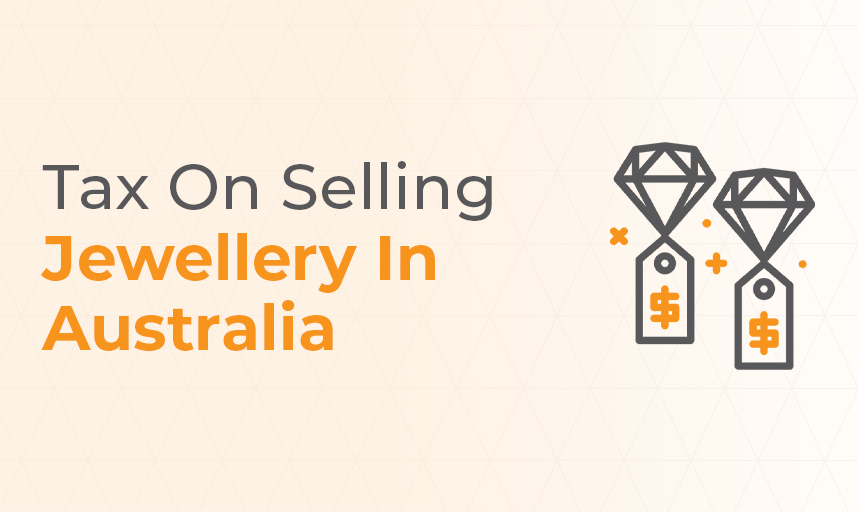Tax On Selling Jewellery In Australia

When selling jewellery in Australia, have you ever considered the tax implications? Being familiar with the tax implications of selling jewellery in a country known for its robust gold industry and love of precious metals is crucial. In this blog, we’ll explore the ins and outs of taxation on jewellery sales, drawing insights from the lucrative gold market and Australian tax regulations.
The Golden Economy: A Glittering Overview
Australia boasts the largest share of gold resources globally, with a gold industry contributing a staggering $23 billion to the country’s economy in 2021. This glittering industry not only provides employment but also serves as a significant revenue source for the government. For many families, selling gold jewellery becomes a means to secure instant cash for unexpected expenses.
The Art Of Selling Gold
Whether broken, unwanted, or old-fashioned, selling gold jewellery can be a savvy financial move. However, before you rush to sell, here are some key considerations:
- Market Timing: Stay informed about the current gold market rates and values. Selling at the right time can significantly impact the returns you receive.
- Trustworthy Buyers: Only engage with trusted gold buyers registered and licensed by the Australian government to deal in precious metals.
- Insurance and Fees: Understand the insurance details and administrative fees brokers charge before finalising your sale.
- Know Your Gold: The purity of your gold jewellery determines its value. Familiarise yourself with the karats of your precious metal to gauge the worth of your offer.
Tax On Selling Gold In Australia
Yes, gold is subject to taxation in Australia, but only on its dollar worth rather than its actual weight. Here are some essential tax considerations:
- Profit-Driven Taxation: You are liable for taxation only when you profit from selling gold. The more profit you earn, the higher the tax you’ll be required to pay.
- Holding Duration Matters: The duration for which you hold your gold impacts your tax liability. Holding it for over a year subjects you to tax on 50% of your profit, while anything less than a year is 100% taxable.
Capital Gains Tax (CGT) On Gold Bullion
When selling gold bullion, you’ll encounter Capital Gains Tax (CGT), which is paid on the profit made during the sale. The CGT rate in Australia is 28%, but remember, you only pay 50% of the profit tax if you held the investment for over a year. To calculate your capital gain, subtract the purchase cost from the sale price. Investment-grade gold bullion, however, is exempt from Goods and Services Tax (GST).
Capital Gains Tax on Selling Gold Jewellery
Similar to gold bullion, selling jewellery can also be subject to CGT at a standard rate of 28%. To reduce your tax liability, consider these strategies:
- Strategic Selling: Avoid spending on physical metals when prices are high.
- Reinvestment: Reinvest your earnings from the gold sale to acquire more gold, as taxes are incurred only when exchanging gold for cash.
- Long-Term Holding: Holding onto your gold for at least a year before selling can lead to a lower income tax rate.
Declaring Gold To The Australian Taxation Office (ATO)
The ATO is essential in Australia for tax administration and revenue collection. The type of gold you have and how you obtain it determines when and how much gold you must report to the ATO.
- Gold Bullion: If you own gold bullion as an investment, you must calculate and report your capital gain or loss on your tax return.
- Gold received as a gift from friends or family members is not taxable and does not need to be reported on your income tax return.
- Earnings from a Hobby: If you do gold prospecting or gathering as a hobby, you may not have to report your earnings to the ATO if it is not considered a business.
Conclusion
When we talk of gold and jewellery sales, understanding the tax landscape is a must. If you are looking to cash in on unwanted treasures or invest wisely, these golden rules of taxation will guide you through the process and ensure compliance with Australian tax regulations. And if you have any concerns with the tax implications of selling jewellery in Australia, you may rely on KPG Taxation. They can guide you through the various tax implications and make your sales shine brightly in the eyes of the law.
- Categories
- Jewellery Tax

Focus On Growing Your Business, Leave The Accounting On Us!
- Income Tax : File your taxes & get the best claims & returns.
- Accountancy : Hire expert accountants to manage your transactions.
- Bookkeeping : Let us handle your record books and expense reports.
- Business Advisory : From company set-up to payroll, we handle it all.



